In a significant gathering at the Presidential Palace in the city of Mukalla, His Excellency Dr. Rashad Mohammed Al-Alimi, President of the Presidential Leadership Council, along with council member Sheikh Othman Majali, met with esteemed scholars, mosque imams and preachers, and the members of the reconciliation committee. The meeting, which took place on Monday, was also attended by the Governor of Hadhramaut, Mabkhout bin Madi.
During the meeting, the President of the Presidential Leadership Council extended a warm welcome to the scholars, emphasizing the continuity of their periodic meetings, valuing their opinions, and listening to their advice and consultations. His Excellency remarked, “In our previous meeting, we heard numerous concerns and suggestions from you. We hope that many of these obstacles have been mitigated, as Hadhramaut exemplifies self-reliance, innovation in solutions, and treatments.”
He further stressed that their meetings are meant for substantive discussions on challenges and not mere formalities, aiming for advice on fortifying security and enhancing internal consensus.
The President underscored the scholars and preachers’ role as not only limited to preaching and guidance but also as thinkers, innovators, and social reformers. He highlighted Hadhramaut’s enlightening role, given its centuries-old status as a significant hub of Islamic scholarly and religious thought, housing various intellectual and jurisprudential schools from which to learn and draw upon their heritage of diversity and renewal.
The President commended the influential role of scholars, mosque imams, and preachers in safeguarding the youth against extremism and terrorist ideologies. He pointed out the reliance of the Presidential Leadership Council, the government, and the Yemeni people on the scholars and the reconciliation committee to bolster the national front against the destructive Iranian-backed Houthi agenda in the region.
He urged the scholars to intensify their efforts in rejecting division, whether sectarian, tribal, or regional, including the pre-Islamic tribal biases as described by the Prophet Muhammad. He also emphasized the importance of keeping houses of worship out of political disputes, upholding the right to free expression and constructive criticism within the legal framework, and respecting national institutions.
The President warned against engaging with the Houthi militia’s rumors and misleading narratives, including their false claims about the Central Bank’s decisions and Yemeni Airlines.
Sheikh Othman Majali spoke on the significance of reinforcing Hadhramaut’s role in the national equation and its political future, cautioning against systematic polarization of Hadhramaut’s youth and other liberated provinces in favor of the Houthi-Iranian project. He also highlighted the severe human rights violations and international law breaches by the Houthi militias, including house bombings and violations of personal dignity, underscoring the legitimate forces’ responsibility in improving conditions in the liberated provinces across all levels.
The meeting concluded with interventions from the scholars, welcoming the presidential directives and discussing the role of the state and preachers alike in promoting unity, moderation, and the exclusion of religious discourse from political disputes. They also addressed the need to elevate religious discourse to support law enforcement authorities, combat corruption, extremism, and organized crime.
To follow the news in Arabic
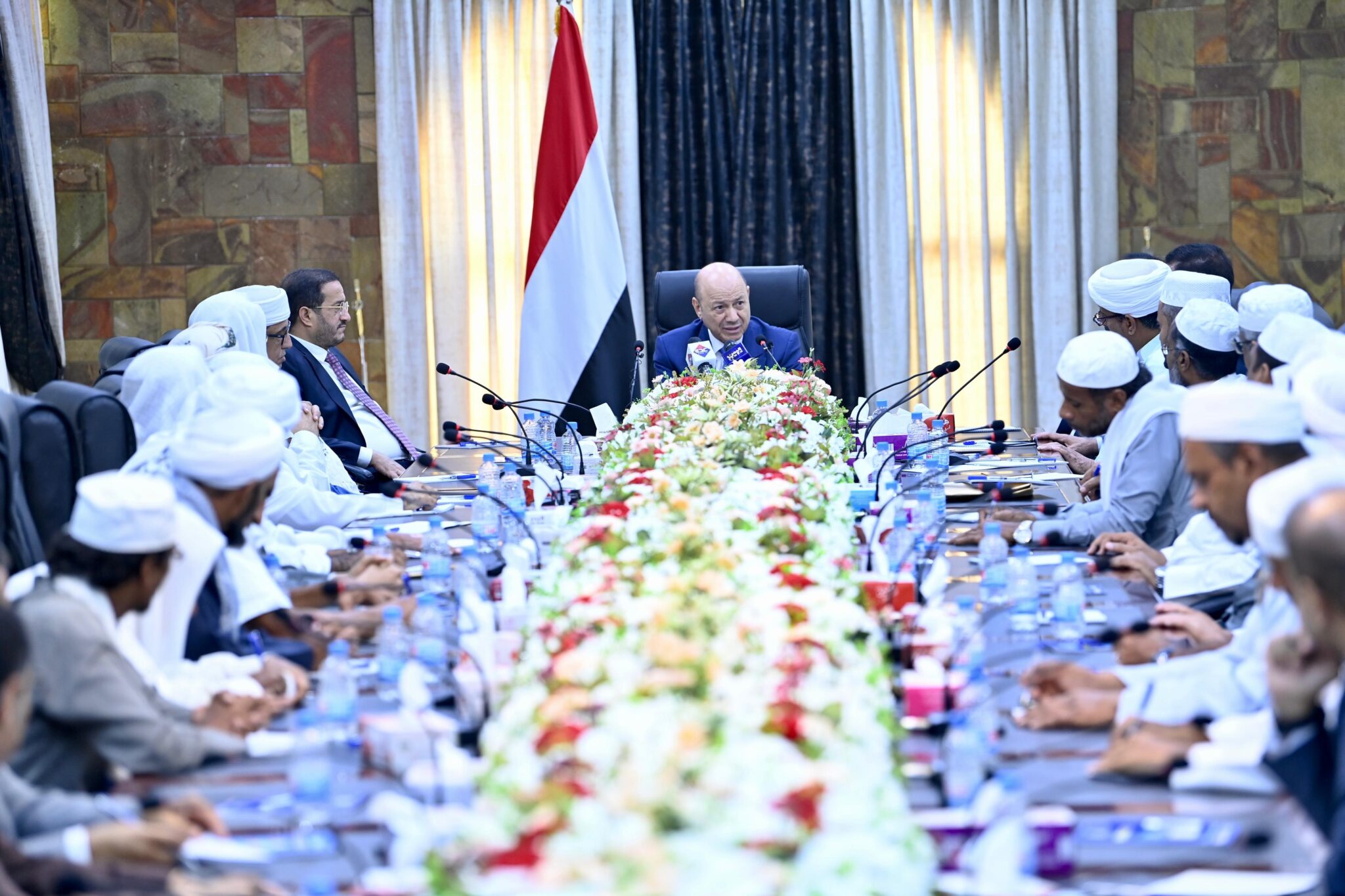
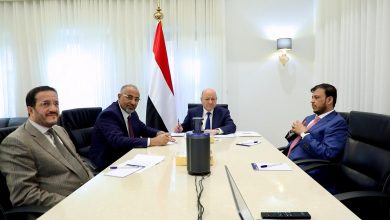 The Presidential Leadership Council discusses national and regional developments in a recent meeting.
The Presidential Leadership Council discusses national and regional developments in a recent meeting.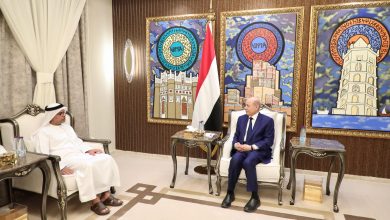 The Chairman of the Presidential Leadership Council receives the Ambassador of the United Arab Emirates.
The Chairman of the Presidential Leadership Council receives the Ambassador of the United Arab Emirates.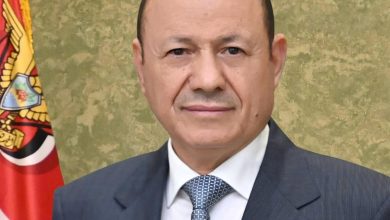 The Chairman of the Leadership Council praises the new British support for the Yemeni Coast Guard forces.
The Chairman of the Leadership Council praises the new British support for the Yemeni Coast Guard forces.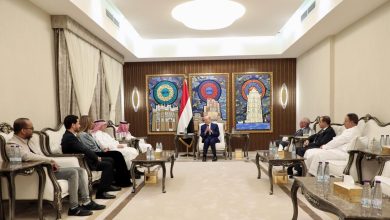 The Chairman of the Leadership Council receives the leadership of the Yemeni Orchestra.
The Chairman of the Leadership Council receives the leadership of the Yemeni Orchestra.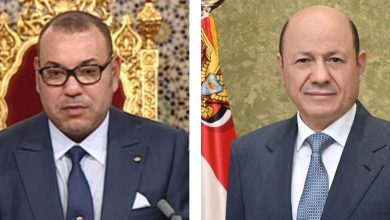 The Chairman of the Presidential Leadership Council extends congratulations on Morocco’s Independence Day.
The Chairman of the Presidential Leadership Council extends congratulations on Morocco’s Independence Day.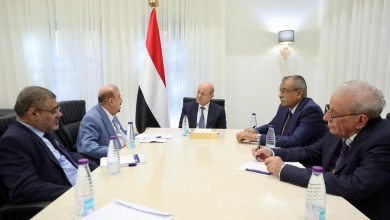 The President of the Presidential Leadership Council meets with the Chairman and members of the Parliamentary Leadership Council.
The President of the Presidential Leadership Council meets with the Chairman and members of the Parliamentary Leadership Council.